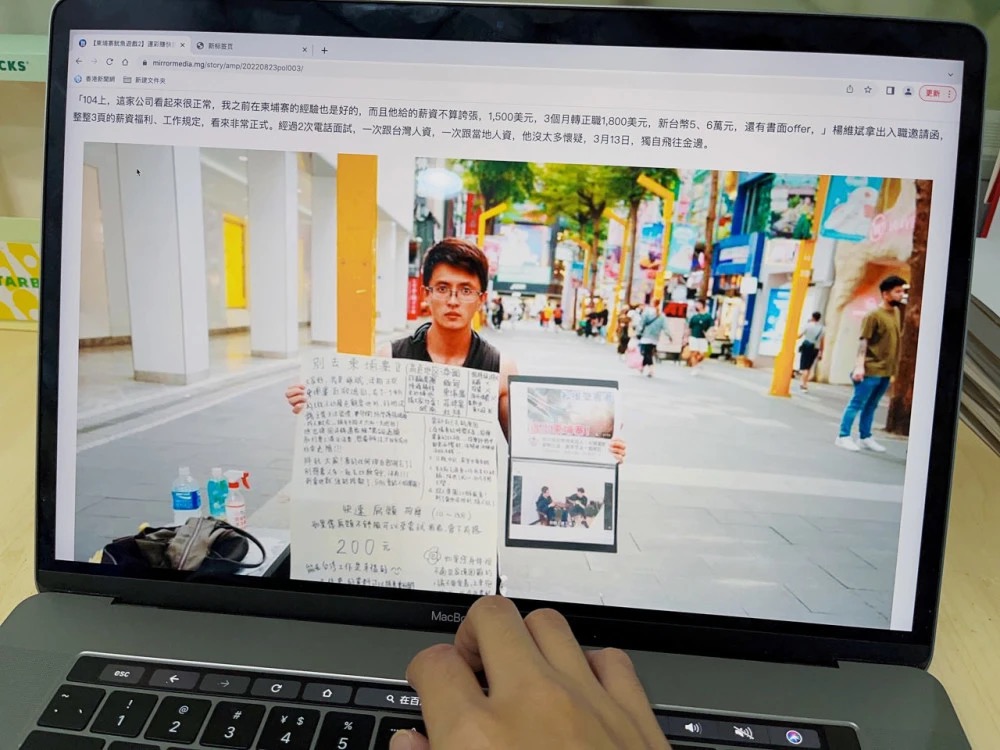
More than twenty victims of fraud, including Malaysian, Taiwanese, and mainlanders, can be found inside the iron-barred facility, including Yang Weibin. They spend practically all of their time here, eating, drinking, and sleeping there. Their daily meals often consist of white noodles that have been boiled in water with a few green veggies.
The goal of “Yang Weibin’s” 24 hours was to finish the work and achieve performance.
“The ‘job’ is actually money laundering.” Yang Weibin shows their “workflow” for the Southern Weekend reporter: The fraud company demands that they use the international version of QQ on the interested party, which then directs them to another chat app, Then from the chat software to the company’s internal App. From the app, they then transfer the bank card, identification card, password, and other information to the company’s internal system, all in one place. One “business of money laundering” is over.
The Republic of Cambodia has removed foreign exchange regulations and liberalized foreign exchange activities, including buying and selling foreign exchange and all kinds of international settlement transfers, with the enactment of its Foreign Exchange Law in 1997. This has given rise to a robust underground money-laundering industry in Cambodia.
“It was later discovered that nobody could meet the original performance of more than two million U.S. dollars (equal to 20 million yuan) per person every month.” The last condition was to finish at least $580,000 (RMB 4 million), according to Yang Weibin.
The “job” of Zhang Jiani is to commit “beauty” fraud.
A manager who spoke with a Taiwanese accent oversaw all of the employees who were under house arrest. Zhang Jiani must utilize dating apps to entice men’s money with emotions because she is a girl. A guidebook in Chinese on how to approach various groups and persuade them to invest in virtual currency was supplied to Zhang Jiani.
“The other party must first fall in love with you in order to acquire their trust before you can find a means to get them to pay money into a predetermined link. “According to Zhang Jiani, who only speaks Chinese, the majority of her targets are middle-aged and older people in Taiwan and mainland China. “You have to perform well every month or your pay will be withheld and you’ll get beat up.”
Even though, Zhang Jiani did not get paid even after finishing her assigned tasks.
There is an unwritten rule in her company that those with exceptional abilities will be “valued,” while those with average abilities who consistently fail to complete their tasks will suffer physical harm, be abandoned by the company, and be resold to another company for prices ranging from $20,000 to $50,000.
Another revenue stream for these organizations is the sale of individuals.
The amount of money that needs to be “paid out,” which is a black language for how much the new buyer will have to pay for the purchase and also reflects the “ransom fee” for the victim of the scam, is something that Southern Weekend reporters frequently observe in the trading groups mentioned above. The payout price usually ranges from a few thousand dollars to tens of thousands of dollars.
Chen Yanting, a young Taiwanese, chose to “sell” himself once again.
“He was tricked into going to the same place as I was.” Yang Weibin told Southern Weekend that Chen Yanting found another “company” online in Cambodia, which paid a ransom of $2,000 for him, and he entered the new company as a security guard.
Translator:Catherine Zeng